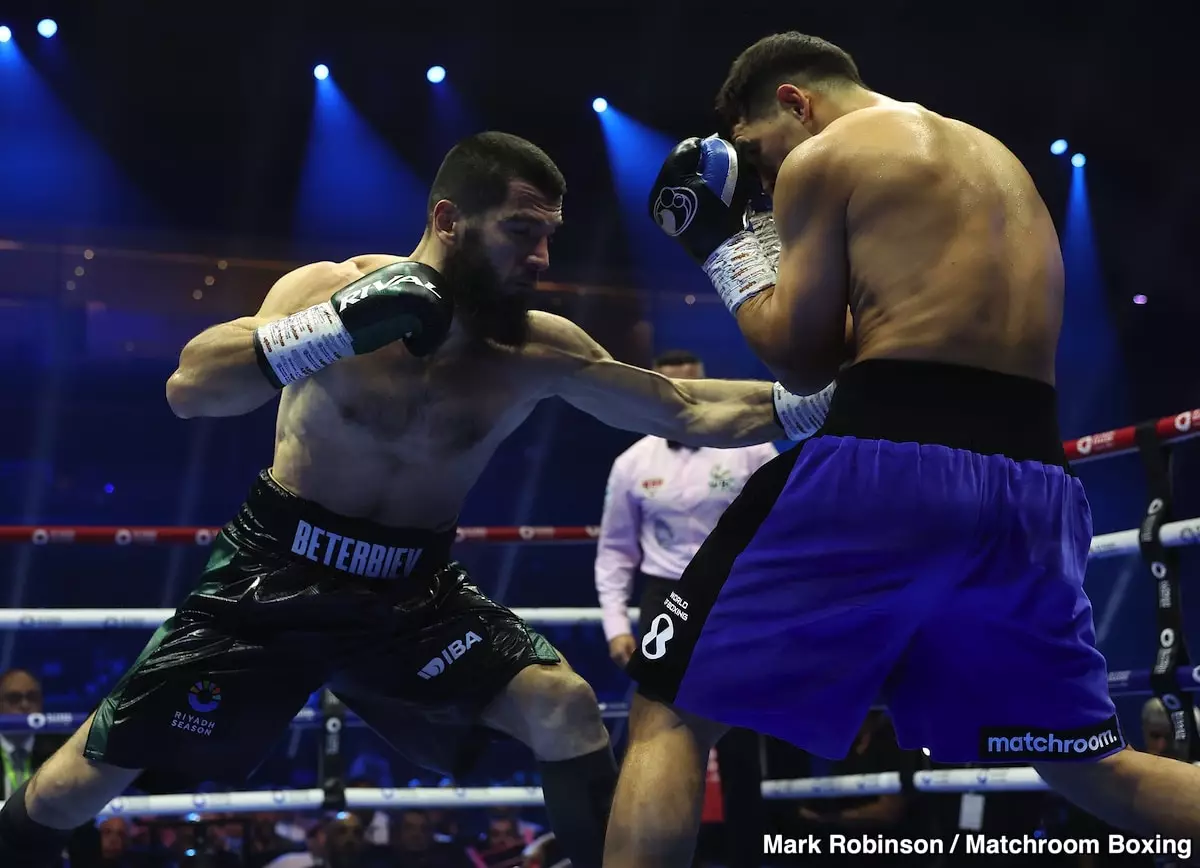In the intricate world of boxing, timing is everything, and the relationship between a fighter’s age and their likelihood of winning is a pivotal consideration. Sergio Mora has recently expressed that David Benavidez might benefit significantly from the strategy of “aging out” the current undisputed light heavyweight champion, Artur Beterbiev. As the latter approaches his 40th birthday, the implications of such a strategy come into sharper focus, raising questions about the ethics of waiting and the nuances of boxing as a sport.
Throughout the history of boxing, the notion of fighters waiting until their opponents reach an age where they may be less competitive is a strategy that has created a noticeable pattern. Mora believes that Benavidez could maximize his odds of winning by allowing Beterbiev to age, asserting that this is a common practice in the sport. While it’s true that various fighters have capitalized on this phenomenon—defeating champions who have outlasted their prime—it raises an important ethical debate: should a fighter intentionally delay a match for strategic gain? The implications for the integrity of the sport are considerable; might it suggest that the champion’s accomplishments are diminished when the challenge comes from a naïve decision to wait for an advantageous moment rather than stepping into the ring against a peak opponent?
As Benavidez prepares for an essential bout against WBA ‘regular’ champion David Morrell, the stakes are higher than ever. Winning this fight could set him up for a potential showdown against either Beterbiev or his rival, Dmitry Bivol, who are set to face each other in a highly anticipated rematch. Mora points out that waiting for Beterbiev to decline in performance may be tempting, but it could tarnish the legacy Benavidez aims to build. Waiting for an opponent to show signs of age could also characterize Benavidez as less confident in his abilities. After all, true champions relish the opportunity to face the best—regardless of age or physical condition.
At 39 years old, Beterbiev remains a formidable figure in the sport, boasting an impressive record of 21 wins with 20 knockouts. Many in the boxing community recognize him as not just a champion but one of the hardest punchers in the game. Mora emphasizes the risk that Benavidez would face by fighting Beterbiev now, underscoring the champion’s exceptional power and fighting style that thrives in close quarters. The danger of stepping into the ring against someone with Beterbiev’s credentials can outweigh the potential rewards of his present age. It prompts a strategic reevaluation; should Benavidez truly fear facing a champion prior to reaching an age of vulnerability?
The light heavyweight division is witnessing a thrilling era of competition with the likes of Beterbiev, Bivol, and Benavidez all vying for dominance. As this drama unfolds, Mora points to Bivol’s upcoming rematch with Beterbiev, suggesting that the outcome might alter the landscape of the division entirely. If Bivol manages to convincingly defeat Beterbiev, it could promptly elevate him as the new threat. Thus, the dynamics of power within the division continuously shift, reflecting the inherent unpredictability of boxing.
The dilemma facing Benavidez is multifaceted. While the notion of allowing Beterbiev to age out may present a seemingly strategic pathway to victory, it raises essential questions about the essence of competition in boxing. Fighters must challenge themselves against formidable opponents, learning and growing with every match. Careful consideration is necessary for Benavidez as he contemplates waiting for an aging champion; the potential rewards may not outweigh the risks of tarnishing his own image within the boxing community. As intense rivalries emerge and the timelines of these fighters intertwine, one thing remains clear: every decision made in the ring will shape the future narratives of these athletes and the sport itself.

